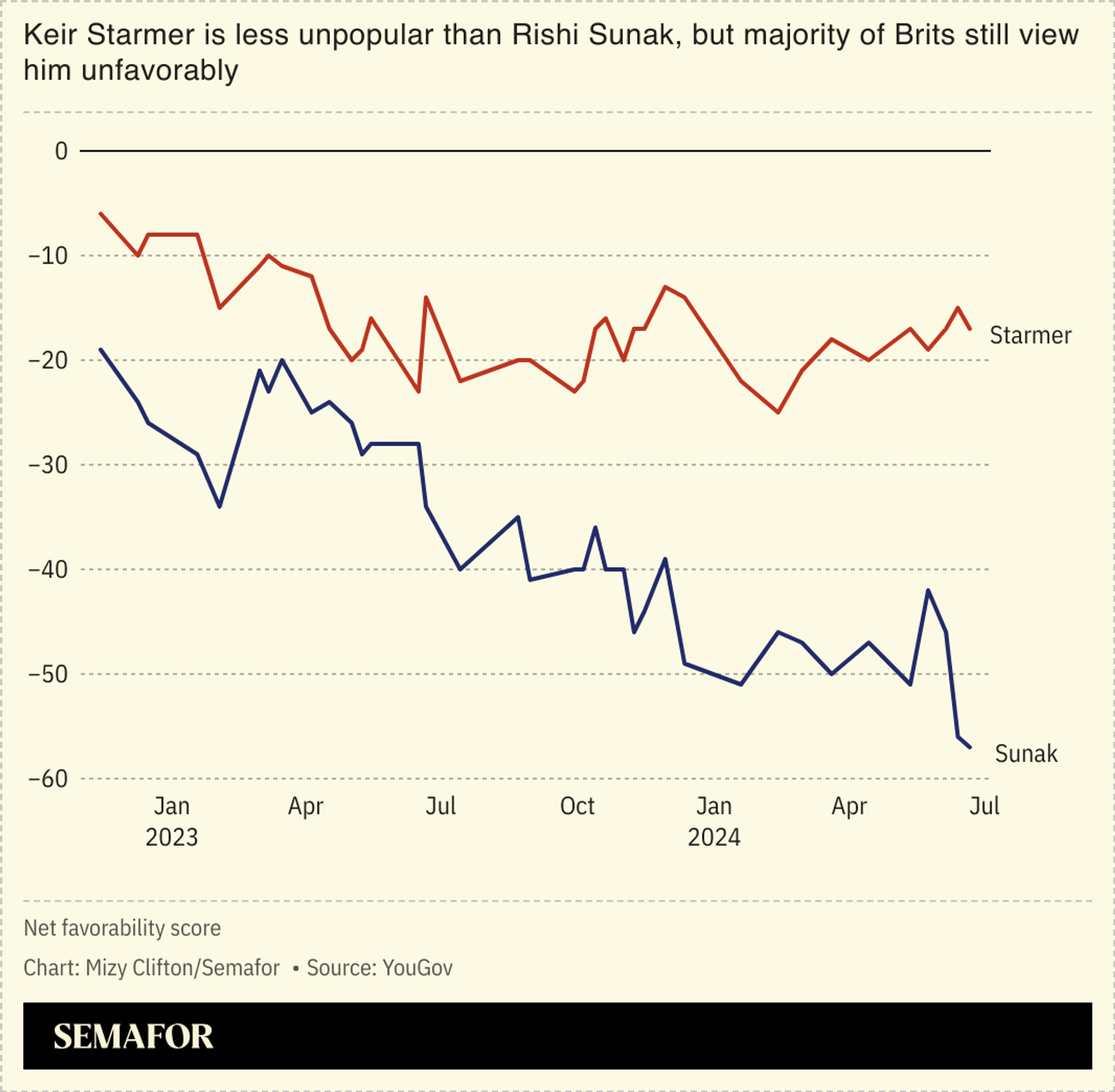The News
Britain appointed its first center-left prime minister in 14 years on Friday after the Labour Party’s landslide general election victory, making the UK something of an outlier in Europe.
Labour’s win comes days after Marine Le Pen’s far-right National Rally made sweeping gains in the first round of France’s parliamentary elections and a far-right government was appointed in the Netherlands, and less than two years after Giorgia Meloni became the premier of Italy’s most right-wing government since World War II.
But the unprecedented rise in Britain of staunch Brexiteer Nigel Farage’s Reform UK, which secured about 14% of the vote share, suggests the country is far from immune to the right-wing wave sweeping Europe.
SIGNALS
Labour’s landslide victory is ‘broad but shallow’

Having won just a third of the total vote share — the lowest of any single majority government in history — Labour’s seismic result was secured on an “incredibly broad but also incredibly shallow” platform, the director of UK in a Changing Europe told Time. The contest was less a positive endorsement of Starmer or Labour than an anti-Tory “electoral punishment beating” after 14 years of rule, Channel 4’s political editor noted, with the party’s success also owing much to right-wing splits and the Liberal Democrats’ surge. Volatility may be the “new normal” in British politics as voters abandon old tribal allegiances, meaning Labour faces a sea of competing demands even with its new legislative power, a columnist argued in The Guardian.
The surge in support for Reform could spell trouble for Britain’s center ground
While Labour’s election makes the UK an outlier across Europe, where far-right parties are riding high, an anti-incumbency mood may be driving both patterns, an expert told CNBC, and the relative success of Reform UK suggests that right-wing populism is also making inroads in Britain, Politico reported. That Reform scooped second place in many constituencies means Labour will need to keep an eye on the nationalist right, but it is ultimately the Tories who now face the “immediate existential crisis” of needing to either steal Reform’s policies or rebuild from the center ground, a columnist argued in the Financial Times — though having sought to detoxify their brand in the election campaign, leadership contenders are unlikely to strike a deal with Farage, the deputy editor of ConservativeHome argued in The Guardian.
Eyes on Labour’s relations with Europe
Labour’s moves on migration will be closely watched in Europe. Starmer’s vow to ditch the outgoing Conservatives’ controversial plan to resettle migrants in Rwanda will likely require cooperation with neighboring countries grappling with similar issues, a Chatham House expert noted. Farage’s Reform will pressure the new government to keep Europe at arm’s length, but it’s going to be much harder for Starmer to implement his pro-growth agenda outside of the single market, an expert told DW — especially since the bloc is unlikely to offer Britain any major concessions, another added. “Working with a like-minded partner, friend and ally is what [the EU] wants,” an EU source told Reuters, “but the idea of having the same benefits you get as a member of the club becomes a little trickier”.

